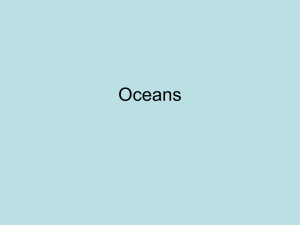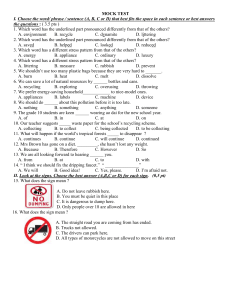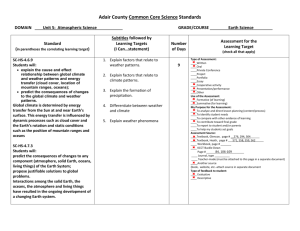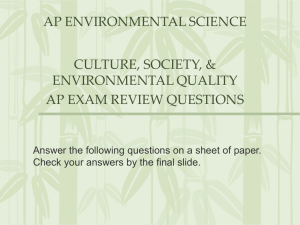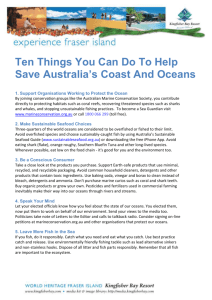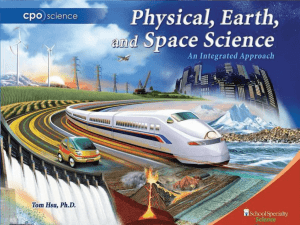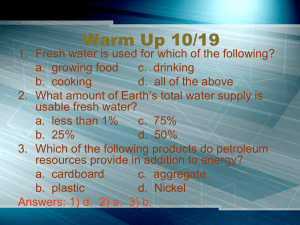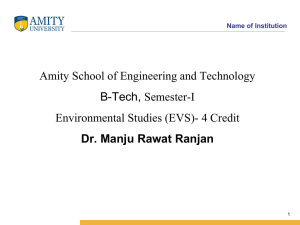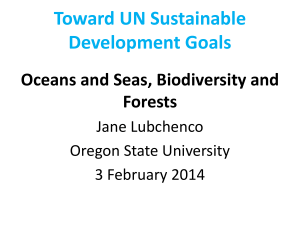Consevation Study Guide
advertisement
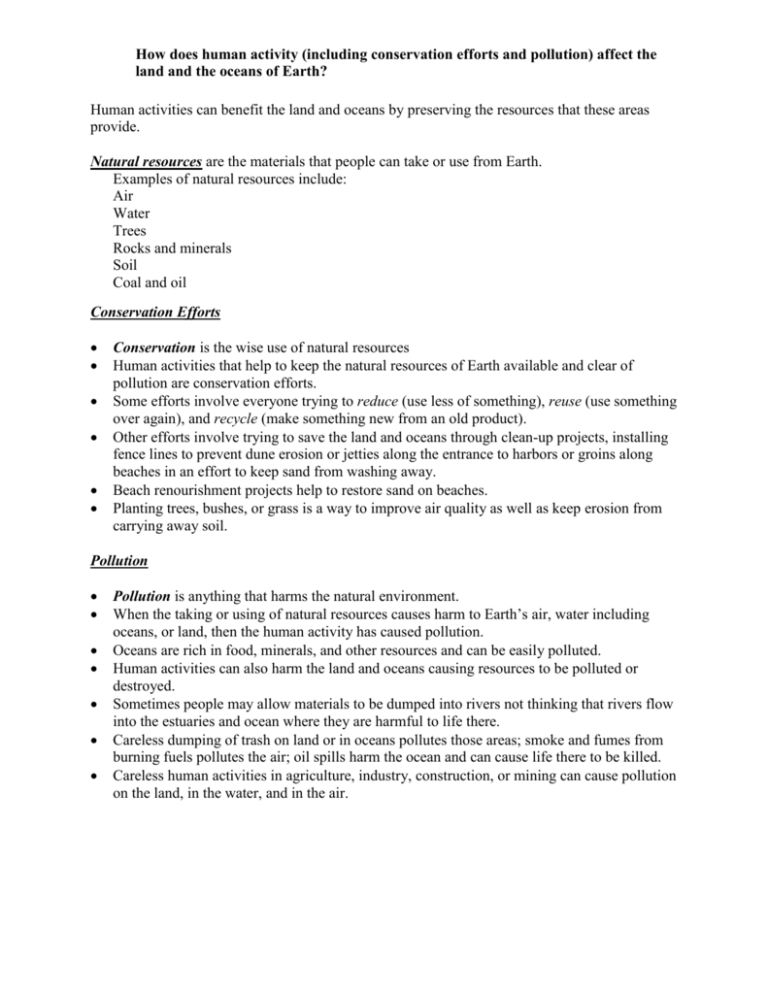
How does human activity (including conservation efforts and pollution) affect the land and the oceans of Earth? Human activities can benefit the land and oceans by preserving the resources that these areas provide. Natural resources are the materials that people can take or use from Earth. Examples of natural resources include: Air Water Trees Rocks and minerals Soil Coal and oil Conservation Efforts Conservation is the wise use of natural resources Human activities that help to keep the natural resources of Earth available and clear of pollution are conservation efforts. Some efforts involve everyone trying to reduce (use less of something), reuse (use something over again), and recycle (make something new from an old product). Other efforts involve trying to save the land and oceans through clean-up projects, installing fence lines to prevent dune erosion or jetties along the entrance to harbors or groins along beaches in an effort to keep sand from washing away. Beach renourishment projects help to restore sand on beaches. Planting trees, bushes, or grass is a way to improve air quality as well as keep erosion from carrying away soil. Pollution Pollution is anything that harms the natural environment. When the taking or using of natural resources causes harm to Earth’s air, water including oceans, or land, then the human activity has caused pollution. Oceans are rich in food, minerals, and other resources and can be easily polluted. Human activities can also harm the land and oceans causing resources to be polluted or destroyed. Sometimes people may allow materials to be dumped into rivers not thinking that rivers flow into the estuaries and ocean where they are harmful to life there. Careless dumping of trash on land or in oceans pollutes those areas; smoke and fumes from burning fuels pollutes the air; oil spills harm the ocean and can cause life there to be killed. Careless human activities in agriculture, industry, construction, or mining can cause pollution on the land, in the water, and in the air.
